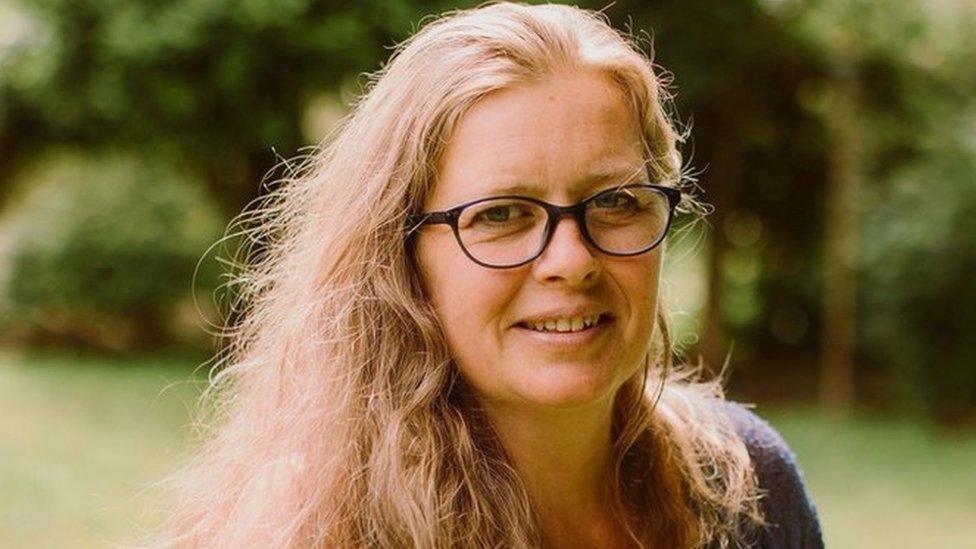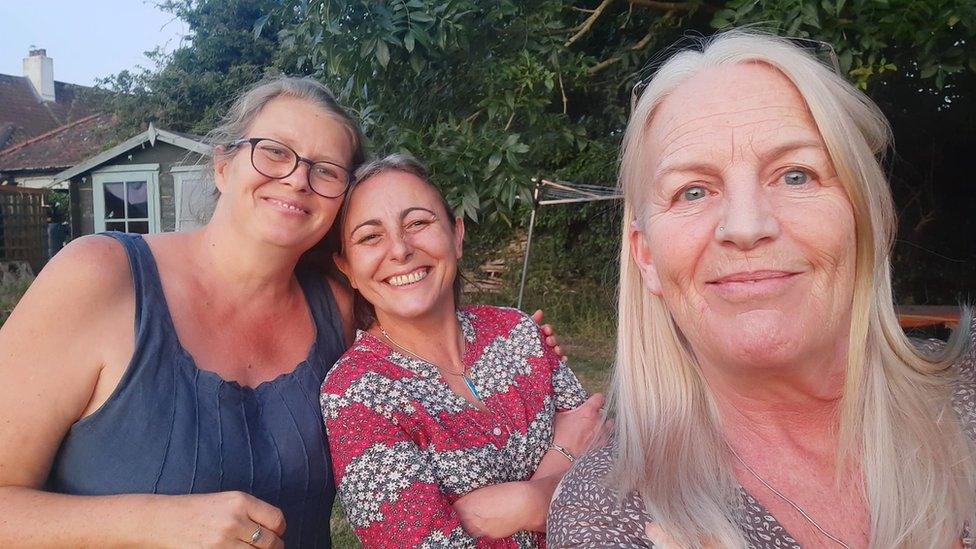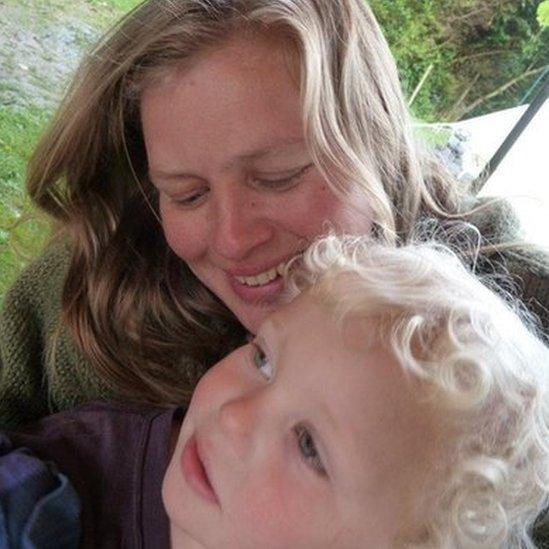Bristol mum facing £85k bill to extend life with her son
- Published

Sarah said: "You have to, on one hand, accept that you could die at any moment in a very real way. But you also have to stay positive."
A mum is facing an £85,000 bill to undergo treatment she hopes will allow her to see her son take his GCSEs.
Sarah, 49, was diagnosed with glioblastoma, an aggressive form of cancer, in her brain in November 2020.
After she was given 14-16 months to live, Sarah's friends raised more than £37,000 to enable her to start dendritic cell therapy, external in Germany.
She said her son, aged 12, "needs a mum" and "there isn't an amount you can put on that".
Sarah's treatment would need to extend her life by about four years for her to see her son taking his GCSEs.
NICE (The National Institute for Care and Excellence) currently has no guidelines on immunotherapies for glioblastomas, which are almost always fatal, in the UK.
'Ninja training'
After meeting another woman whose tumour shrunk following dendritic cell therapy, Sarah, who lives in Bristol, felt this was the best option to potentially extend her life.
The experimental treatment makes a personalised cancer vaccine from the patient's own blood cells.
"In my head my white blood cells are being sent off to ninja training camp where they have bayonets and they run at sandbags," she said.
The practice in Duderstadt, said it aimed "to make scientific discoveries available to patients as quickly as possible".
While the drug is not yet approved, the clinic's physicians have an official licence to use it, but with strict guidelines.
"I want to get my son to his GCSEs - that would be amazing. Although getting him to do his homework might kill me off in the meantime," Sarah added.

Sarah said she felt "really fortunate" to be surrounded by a "fantastic community" during her illness, including friends Pilar Garcia (centre) and Jax Long (right)
In October 2020 the permaculture teacher started struggling to speak coherently.
"The ambulance lady said 'can you say you can't teach an old dog new tricks?' and all I could say was 'dog,'" she said. "It was very scary."
Sarah underwent a five-hour waking craniotomy which removed 100% of the tumour. However, a glioblastoma reseeds cancer cells around the area of the tumour, causing it to return in almost all cases.
"I don't know many people who would deal with it quite like Sarah," said her friend, Jax Long. "She's still going out of her way to make other people feel better about it."

Sarah said: "There are also moments where you feel completely terrified. Particularly because I've got a 12-year-old son."
The German clinic said "in certain patients" there is a chance dendritic cell therapy will prevent a recurrence or a re-growth of the tumour, potentially prolonging their life.
Treatment lasts for two or three years, hence the cost of at least £70,000 plus expenses. More than 900 people have raised more than £52,000 on Sarah's Just Giving page.

Analysis by BBC Points West Health Correspondent Matthew Hill
Glioblastomas are terrible cancers - I know from personal experience as this form of cancer claimed the life of my youngest sister. The prognosis is poor and patients face a future of increasing disability even after successful initial treatment - it is no wonder they look for any option to help.
But if you talk to experts in the field, like Dr Paul Cornes, who is a world-leading oncologist from Bristol, he would advise that there is no credible evidence that a patient will live longer or live better by having this treatment and that patients would be better off registering for two open trials of immunotherapy - the UK PARADIGM-2 and the Oxford IPI-GLIO trial.
There is a useful website, external from the UK Braintrust to help steer patients to research centres.

"The messages that really make me cry are the single mums who say, here's a tenner, because I know how hard it is to be a single mum," she said.
Dr Paul Cornes, a core lecturer for the European School of Oncology, emphasised that the treatment is experimental, so does come with risks, adding: "Side-effects can be different for everyone."
He said there were several trials for immunotherapies in the UK, which he would always advise people to look for first, through charities like Macmillan.
Sarah said she did not fit the criteria for any trials and did not have time to sit on a waiting list.
"It's just unfortunate she has to go as far as Germany," said Dr Cornes, adding: "If I were desperate would I try whatever I could? Yes I would."
He explained that the tailor-based treatment would have faced many barriers to approval so far, such as its cost.
"Nine out of 10 people [with glioblastoma] are dead within a year or two, but that leaves one person who might make it a bit longer," added Sarah.

Follow BBC West on Facebook, external, Twitter, external and Instagram, external. Send your story ideas to: bristol@bbc.co.uk , external